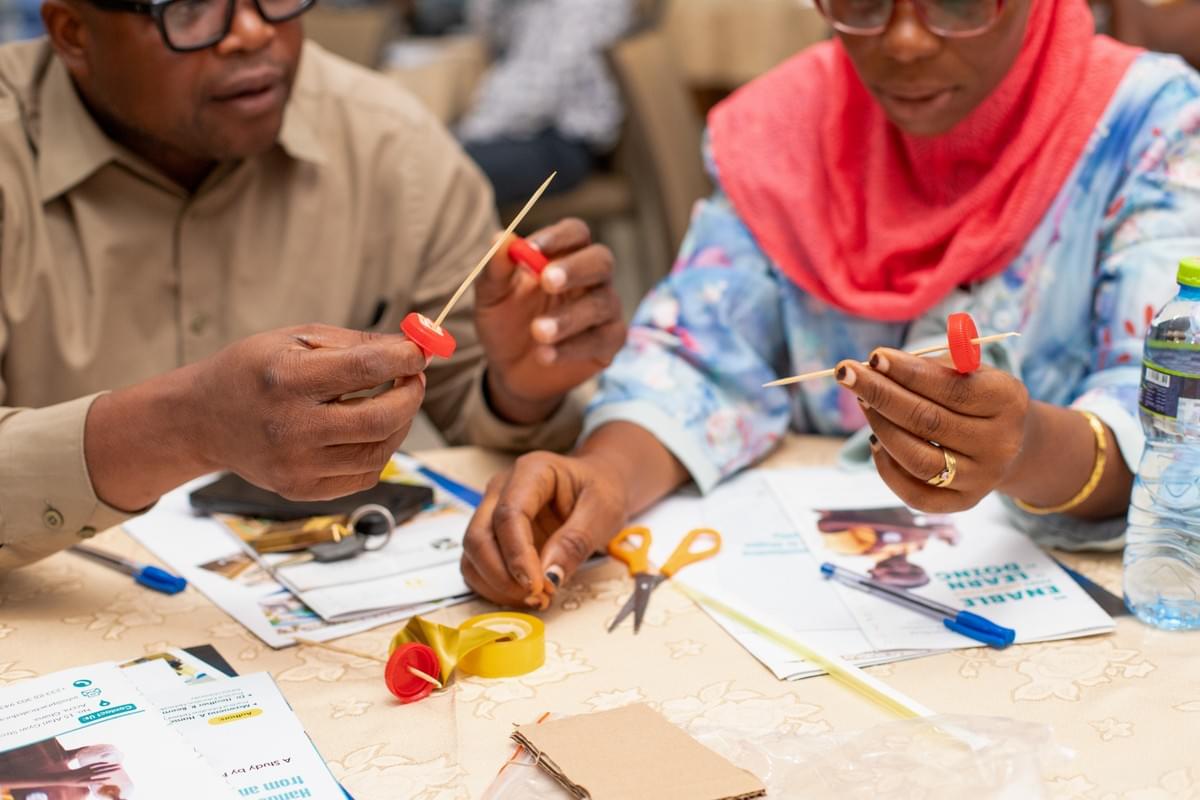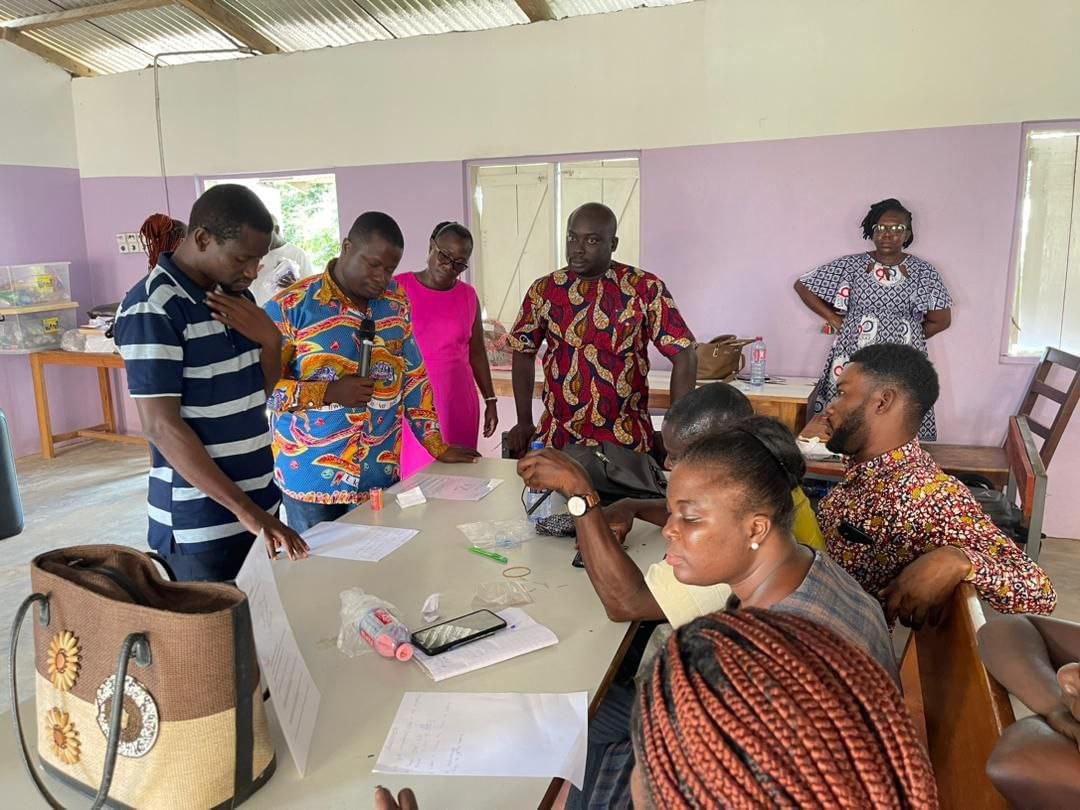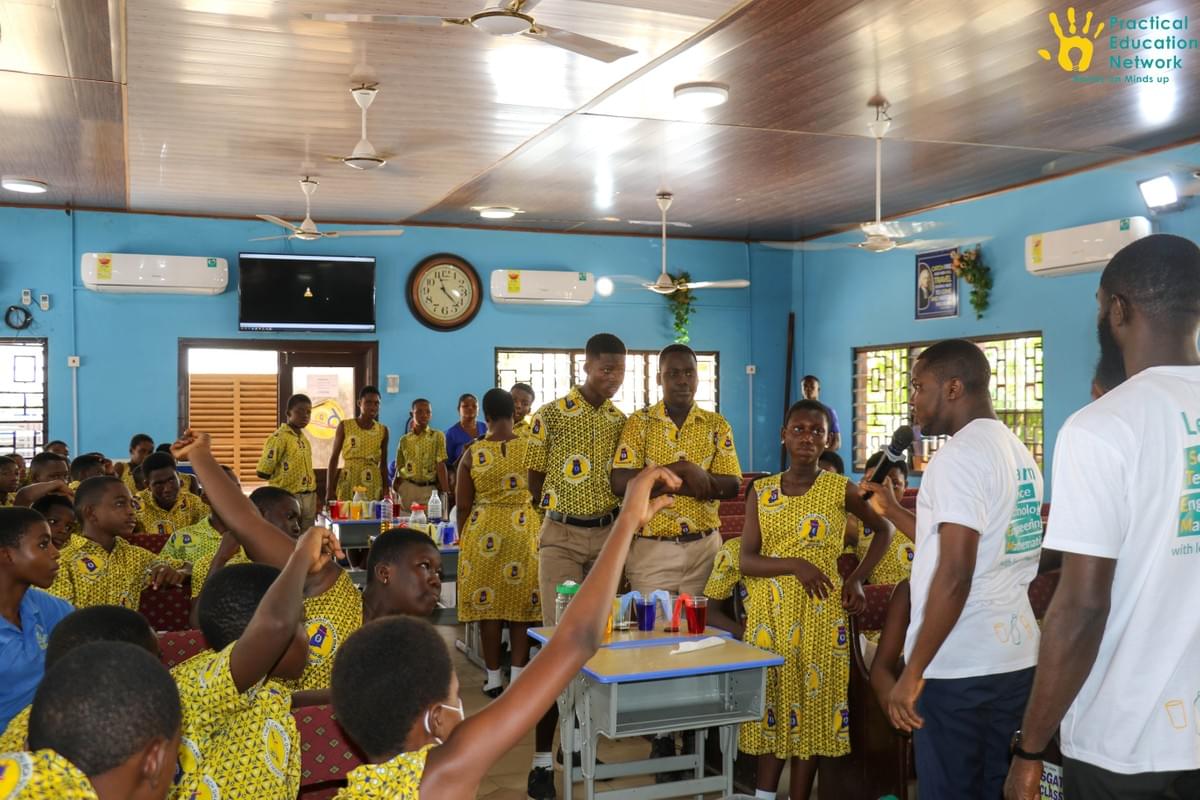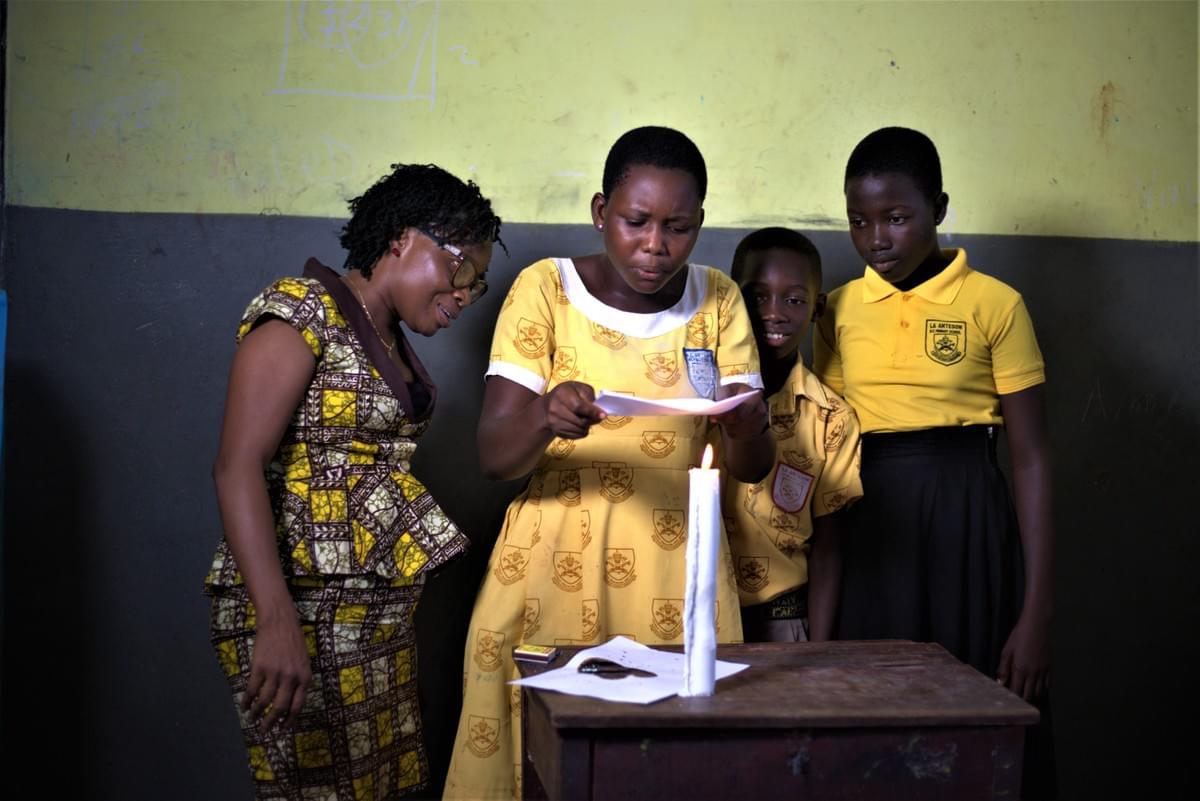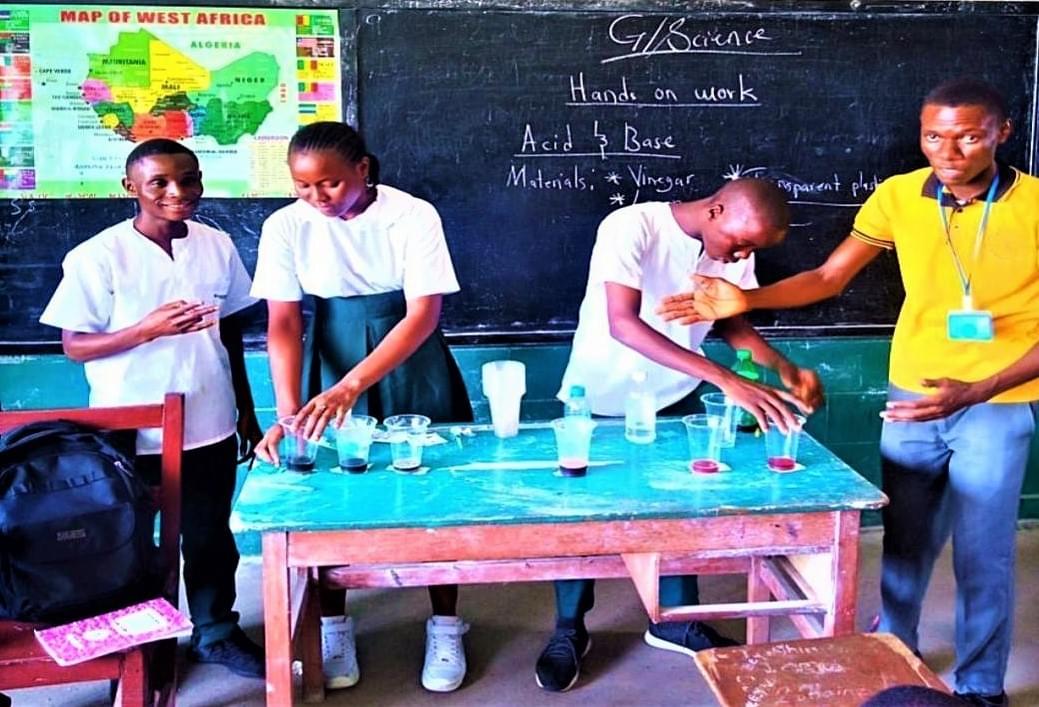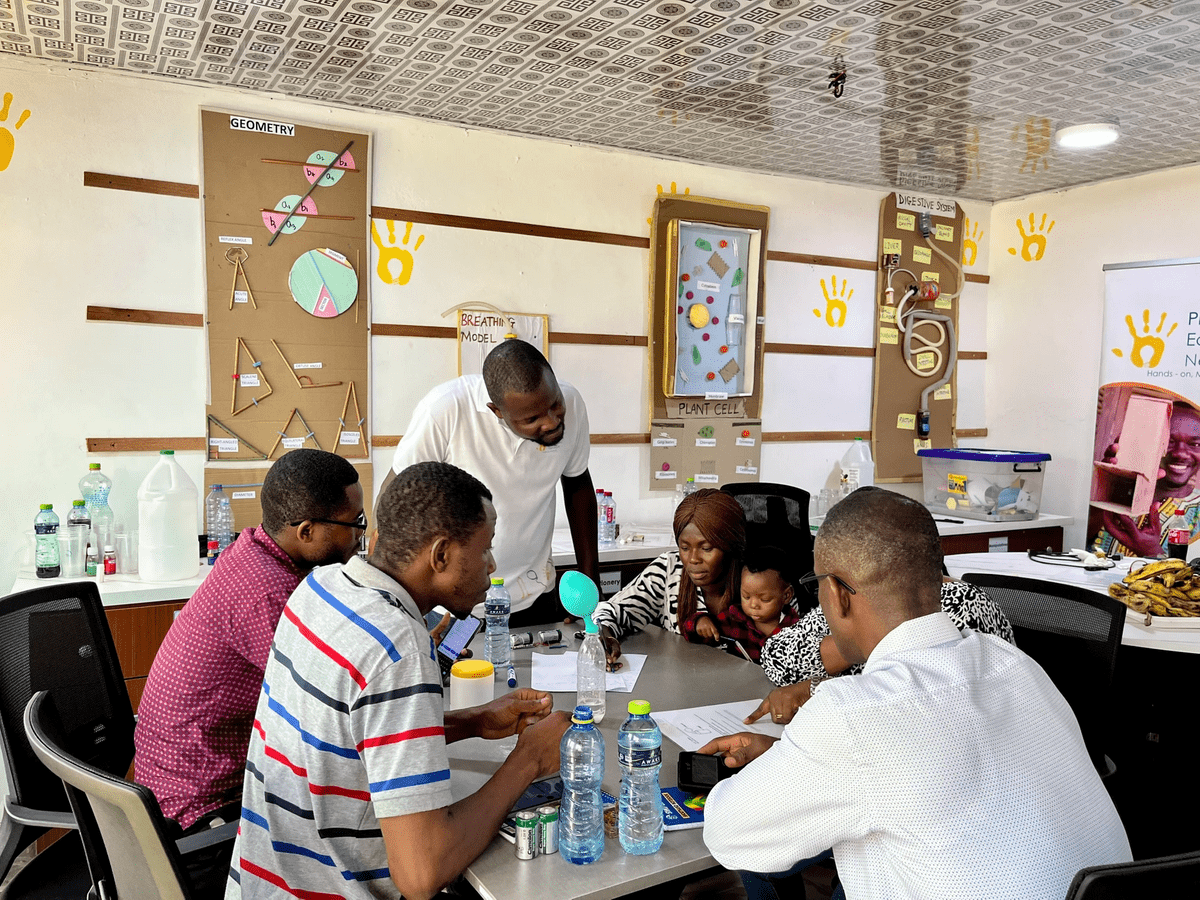



- About Us
- Publications
- Support Us
- …
- About Us
- Publications
- Support Us



- About Us
- Publications
- Support Us
- …
- About Us
- Publications
- Support Us

Read our latest research publications.

Hanson & Beem, 2024. "Transitioning Hands-On STEM Teacher Training in Ghana from an In-Person to Online Modality"
Abstract - COVID-19 provided an avenue for teaching and learning to be done remotely, hence Practical Education Network (PEN), a nonprofit organization in Ghana, took advantage of this to transition from an in-person to online training mode. This study aimed to determine how the efficacy of hands-on STEM teacher training in Ghana compared between fully in-person and fully online modalities as well as the best practices that can be elucidated from a Ghanaian training provider’s transition between the two. In-person training content was converted into videos and PowerPoint presentations accessed asynchronously together with synchronous Zoom sessions for discussions. Between 2020-2021, two hundred and twenty (220) teachers who teach Science, Math and ICT were selected from 10 Regions of Ghana to participate across five (5) cohorts. Relying fully on locally available materials, PEN successfully implemented an online training on hands-on content, which is arguably a “pandemic-proof” approach. Results showed that teacher confidence and feasibility to implement hands-on activities increased with statistical significance and large effect size for both in-person and online training offerings. Hence, even with minimal technology, teachers across Africa could be trained online and experience meaningful learning. The key difference between the two modalities was the time involved, as the online offering was spread out over a longer period of time. This work can motivate other African education providers to pursue online offerings, as they are lower-cost, and can still be effective, despite contextual challenges.

Hanson & Beem, 2022. "Role of Digital Literacy and Tools in Teacher Persistence in an Online Hands-On Science Training in Ghana"
Abstract— Persistence in online education is a challenge globally. One may presume the depth of this challenge to be even higher in the context of African teacher training, due to low access to laptops, poor connectivity, and minimal digital literacy training. This paper presents results from the maiden attempt by Practical Education Network, a Ghanaian NGO, at offering its hands-on STEM teacher training in an online format. 35% of the 237 teachers targeted for the training persisted through the program– a similar or slightly higher percent than those often cited for online courses in the West. The highest drop-off rate occurred after Enrollment, at the Onboarding stage. This appeared to be less a result of poor connectivity and more a result of insufficient sensitization towards the concept of online training, in general. Most teachers who completed Onboarding persisted through to the end. They exhibited resilience and resourcefulness in overcoming digital infrastructure challenges to complete the 10 assignments and 4-5 live sessions. Strategies included uploading files to the LMS at dawn and moving to locations with stronger connectivity solely for the live session times. Lessons from this intervention can be extended to other African training organizations seeking to offer online modalities of their program.

Babb & Stockero, 2020. "Impact of Practical Education Network on Students in Selected Ghanaian Junior High School Science Classrooms"
Abstract - Within the science education community, it is widely accepted that quality science instruction is focused on knowledge construction and inquiry. The Ghanaian education system has many hallmark issues that inhibit such instruction, however, including a pervasive teacher-centred pedagogy, lack of laboratory materials, and minimal support systems for teachers. The Practical Education Network (PEN) is an organisation that has been working to address these problems by training science teachers to utilise locally available, affordable materials to teach topics in the national science curriculum in a hands-on manner. To study the impact that the use of the PEN approach to hands-on learning has on students’ critical thinking skills, attitudes towards school science and standardised test scores, over 300 students in six Junior High Schools in the Greater Accra Region of Ghana participated in a year-long, quasi-experimental study. The data from comparison and experimental groups consisted of scores on a national standardised test, a pre/post-test simulating the national examination, and a pre/post student survey. The data were analysed for any differences between the two student groups over time. The findings indicated that the PEN approach had a beneficial impact on students’ attitudes towards school science and standardised test scores. There was inconclusive evidence of the impact of the PEN approach on critical thinking skills. The findings suggest that the PEN approach may positively impact science instruction.

Beem, 2020. "Effect of Hands-on Science Activities on Ghanaian Student Learning,
Attitudes, and Career Interest: A Preliminary Control Study"
Abstract - A quasi-experimental study was carried out with 309 Form 3 students across 9 public Junior High Schools in the Greater Accra Region of Ghana. The effect of Practical Education Network (PEN)’s approach of training STEM teachers to employ hands-on activities using low-cost, locally-available resources was studied in terms of student learning outcomes, attitudes towards learning science, and interest in STEM majors/careers. Over a 2.5-month period, the science teacher at each experimental school received a weekly training on a hands-on activity and lesson observation by the respective PEN Trainer. A survey on attitudes towards science and a previous edition of the national exam (BECE) were administered to all students before and after the intervention. The mean pre-post differences were compared between the experimental and control schools. The intervention caused an average of 10.9% increase in exam scores (difference-in-differences), but the results were mixed at the school-level. Unpaired t-tests and Hedge’s g tests were used to determine statistical significance between the two groups. Student engagement increased significantly (p = 3 x 10-7, g = 0.85), and student enjoyment of science increased 22% more, on average. The intervention disproportionately affected the females positively, enabling greater learning gains (14.5% vs. 5.3% for the males), greater increase in engagement, and a significant shift in interest towards STEM majors and careers, which their male counterparts did not experience. Results from this study should inform the design of future studies with longer duration and which account for factors such as school infrastructure quality.

Baseline Analysis of a Control Study Aimed at Improving Teaching Methods of Math Primary and Junior School Teachers in Liberia to Increase Students’ Interest in STEM and Technical and Vocational Education and Training (TVET) Based Careers.
Introduction - In partnership with UNIDO, Practical Education Network (PEN) performed a baseline data collection to obtain information about students' current experiences in STEM classrooms in Monrovia, Liberia. The present level of practical engagement and attitudes towards STEM disciplines were measured and analyzed in this study. The results obtained would be used to assess the impact of an upcoming PEN training program aimed at improving teachers' abilities to incorporate hands-on activities in STEM disciplines. Again, the training also aims at improving teaching quality and increasing student engagement and academic success in math. This report analyzes the responses to a baseline survey conducted by PEN to understand the state of math education and how schools may be fostering an activity of practical education in Monrovia, Liberia.

Baseline Analysis of a Control Study Aimed at Improving Teaching Methods of Science Primary and Junior School Teachers in Liberia to Increase Students’ Interest in STEM and Technical and Vocational Education and Training (TVET) Based Careers.
The Practical Education Network, in collaboration with UNIDO, conducted a pre-survey to gather insights on students' experiences in STEM classes in Liberia. This survey aimed to answer four key questions:
1. What is the state of the classroom environment in these schools?
2. What is the state of students' attitudes towards science and math in these schools?
3. Are the intervention and control schools statistically similar along these lines?
4. What opportunities and needs exist for the intervention to fulfil?
The findings from the survey will be used to measure the impact of an upcoming PEN training workshop intended to enhance teachers' skills in incorporating hands-on
activities in STEM subjects. This report provides a comprehensive analysis and summary of the science survey responses, aiming to improve the quality of teaching and build student interest and academic performance in science.

No. 15 Afari Gyan Street, North Legon, Accra, Ghana.
info@
Contact Us
0303943580
Practical Education Network ©
